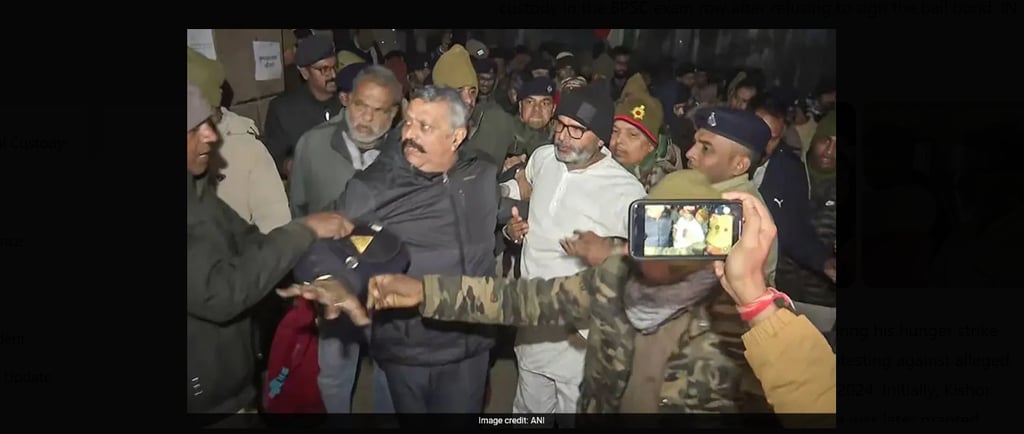Prashant Kishor’s Judicial Custody: A Deeper Look into the BPSC Exam Row
The recent developments surrounding the BPSC (Bihar Public Service Commission) exam have captivated public attention, particularly due to the involvement of prominent political strategist Prashant Kishor.
NATIONAL


Introduction to the BPSC Exam Controversy
The recent developments surrounding the BPSC (Bihar Public Service Commission) exam have captivated public attention, particularly due to the involvement of prominent political strategist Prashant Kishor. As investigations unfold, Kishor has been sent to judicial custody for 14 days as part of the inquiry into alleged discrepancies linked to the BPSC exams. This article aims to explore the implications and underlying issues tied to this high-profile case.
The Circumstances Leading to Custody
On multiple occasions, Prashant Kishor, a significant figure in Indian politics and election strategy, has openly rejected signing a bail bond proposed by the authorities. This refusal has resulted in his current sentencing to judicial custody. The Bihar Police are actively investigating charges that suggest possible malpractices associated with the BPSC examination process. The significance of Kishor’s involvement lies not just in his political stature but also in the potential ramifications his case could have on the integrity of examination systems within India.
Implications for the Education System
The BPSC exam row does not solely revolve around Prashant Kishor's personal predicament; it also raises broader questions about the state of education and examination integrity in India. Many stakeholders have pointed out that such controversies may undermine public confidence in the authority of educational institutions. There are fears that individuals may perceive the educational system as corrupt, leading to distrust among potential candidates and the general populace.
Moreover, Kishor's case could serve as a pivotal moment for policymakers to reassess and revamp the existing frameworks governing competitive examinations. The discourse surrounding this issue emphasizes the necessity for increased transparency and accountability to safeguard the integrity of future assessments.
Public Reaction and Future Perspectives
The public reaction to the Prashant Kishor case has been mixed, highlighting the polarized views on his political influence. While some supporters view him as a catalyst for change, others criticize him as emblematic of the very issues plaguing Indian politics. Amidst the media frenzy, the judicial proceedings will be keenly monitored as they hold the potential to reshape narratives around educational fairness and political accountability. The outcome of his judicial custody and further investigations will be significant in determining Kishor's political future and rehabilitation in the eyes of his followers.
In conclusion, the BPSC exam row involving Prashant Kishor sheds light on intricate ties between politics, education, and public trust. As events unfold over the next 14 days and beyond, the focus will be on the accountability mechanisms that can prevent such injustices from reoccurring.
